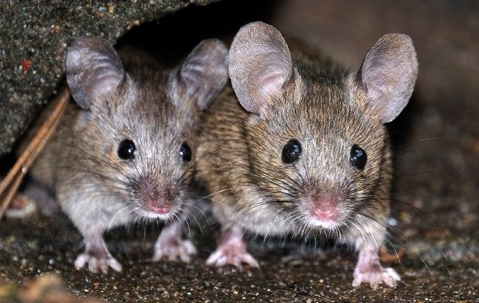How Do Mice Keep Getting Into My Home In Eugene, Oregon?
Eugene, Oregon has a reputation for supporting a community that is enthusiastic in all its pursuits. The citizens are said to be dedicated people who are full of grit. Another resident of Eugene that doesn’t give up quickly is the local house mouse. Once it invades your home, it can show some serious grit and dedication in its efforts to stay put.
What Everybody Ought To Know About House Mice In Eugene
If you spot a mouse scurrying around your house, you most likely have a house mouse. They are the most common mouse that visits people. While their descriptions might make you think they are “cute,” they can also be pretty dangerous.
House mouse characteristics include:
- Rounded body with light brown to dark gray coloration
- Cream-colored underbellies
- 2½ inches to 3¾ inches long
- Pointed noses and large ears
- Tails that measure between 3¾ inches to 4 inches long
These “cuties” can cause severe problems to your home and health. One disease that a house mouse spreads through its feces is salmonella. While uncommon, house mice can also carry a bacteria-borne disease called rat-bite fever; this can happen when people touch a dead mouse or consume food contaminated by mouse feces. Mice urine and dust from their dried feces can also aggravate asthma and allergies.
Little-Known Attractions for House Mice In Eugene, OR
If your home can provide shelter, moisture, and food, it is ripe for a mouse infestation. These little critters can access homes through gaps as small as ¼ inch across, and they can also run along ropes and wires to gain access to your home from above.
Conditions that invite house mice to stay long-term include:
- Unsanitary conditions: Food crumbs lying around, trash cans that are overflowing, food left out or improperly stored can be an open invitation for house mice to feast.
- Moisture problems: Leaky pipes, wet basements, and even pet water bowls can provide water sources for a house mouse.
- Shelter sources: House mice love dark, quiet places and tend to make their nests in packing materials, wall insulation, fabrics, paper products, and cotton. Areas in the home that have lots of clutter can be prime areas for nest building.
House mice are gnawers; they need to chew. Because of this, they can cause extensive damage to homes. Some of their favorite things to gnaw on are insulation, wood, drywall, cardboard, and electrical wires.
Six Keys To Prevent House Mouse Infestations
A great way to keep house mice away from your home is to make it as uninviting as possible. Homeowners have some remedies available to them to help them ward off attracting mice to their homes.
Six preventative measures homeowners can practice include:
- Keep trash cans secure with tightly fitted lids.
- Store food within glass or metal containers with tight-fitting lids.
- Keep surfaces clear of food and crumbs.
- Use silicone-based caulk, construction material, or steel wool to seal holes the size of a dime and gaps more expansive than a pencil.
- Repair leaks and ventilate moisture-prone areas.
- Declutter and keep areas of storage organized, clean, and off the floor.
These strategies will help minimize your risk of a mouse infestation, but they may not be enough to eliminate existing populations.
The Secret To House Mouse Control In Eugene, OR
Mousetraps may catch a few critters, but without professional help from Ultimate Pest Control, your problem will get bigger. Female mice can breed up to six babies every three weeks and bear 35 babies every year. We offer trapping programs that will eliminate your total mouse infestation. Our experts will evaluate the scope of your infestation and identify entry points that provide mice access to your structure. Call Ultimate Pest Control today for solutions to invading mouse problems. We offer both residential pest control as well as commercial pest management services.

